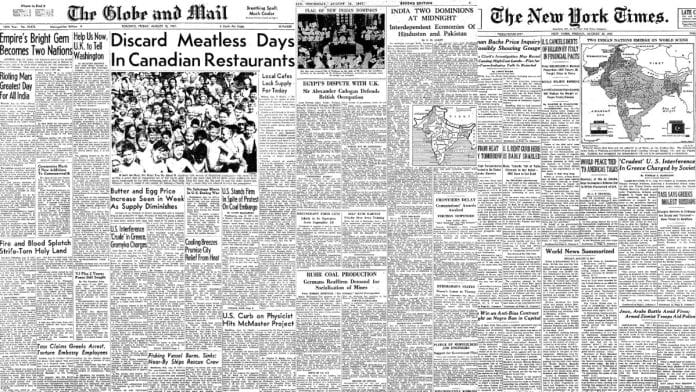Gaining Independence, or more accurately, dominion status on 15 August 1947, marked a historic moment for Indians after nearly two centuries of British rule. It was a time to shed the burden of colonial oppression.
However, perspectives in the West differed.
Many used the occasion to praise Britain, overlooking the financial exploitation of India’s resources and the role it played in exacerbating the Hindu-Muslim divide, which led to unprecedented violence and the country’s partition.
How newspapers reacted
“There is no parallel in history for this act of statesmanship, as there is none for the moral and material benefits which the British Raj has brought to India,” declared The Observer in its comment section of the editorial page, dated 10 August 1947. Spewing venom against Congress, the party that led the freedom movement, it continued: “The dragon’s teeth of hatred and violence so long sown by Congress may yet produce an evil harvest.” The note ended with a hope: “In the very act of separation, Hindu and Moslem seen, by the speeches of their leaders, to have found the means of agreement.”
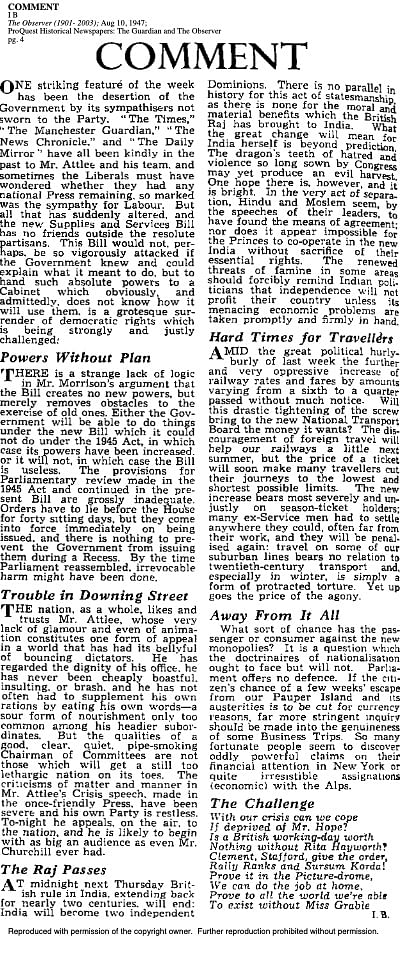
Writer OM Green, in The Scotsman edition dated 14 August, went even further, almost implying that the British worked hard to give independence to India. “British rule had brought to India…a unity and peace they had never before known, ideals of justice and purity of administration unsurpassed anywhere and material benefits which meet the eye of the visitor at every turn.” Wrote Green, “Since 1919, beginning with the Montagu-Chelmsford constitutional reforms, Britain has worked steadily towards the goal of independence for India. That goal has now been reached…”
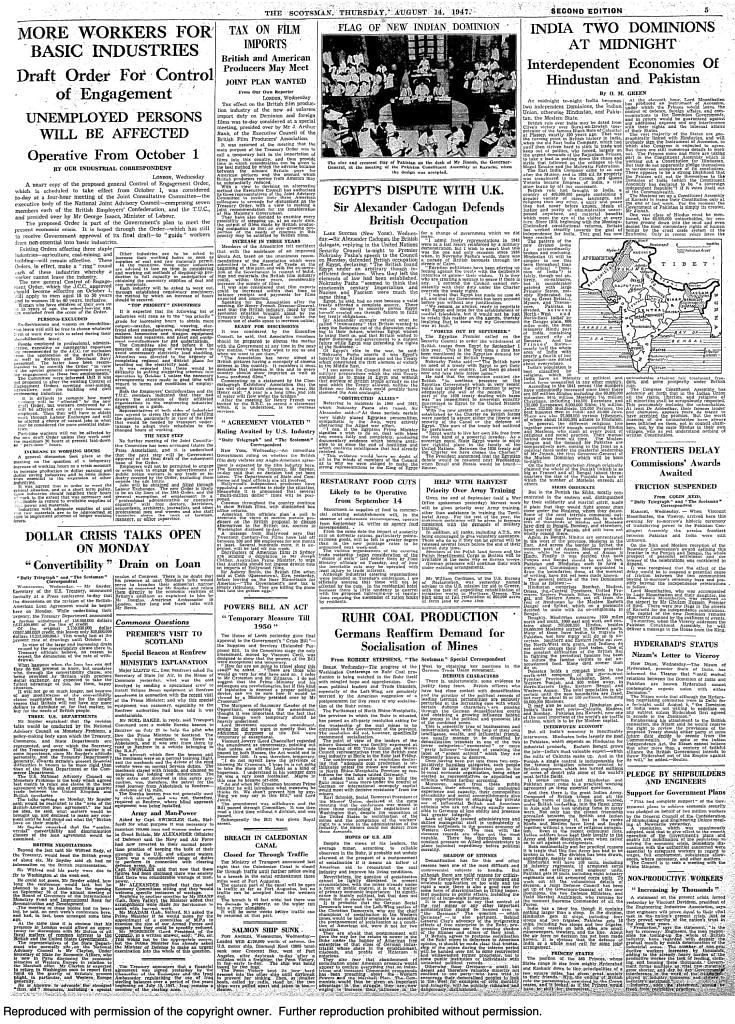
The newspapers of Canada, a Commonwealth country, also went overboard praising the British Raj. “Great Britain will never get full credit for all she has done in India. It would be too much to expect that anyone would ever think of praising the British for many of the accomplishments that have helped India.” Wrote W.L. Clark in his column in The Windsor Daily Star edition dated 8 August: “The natives of India who realize that Britain has done much for them will hope the British will still keep a benevolent eye on events.”
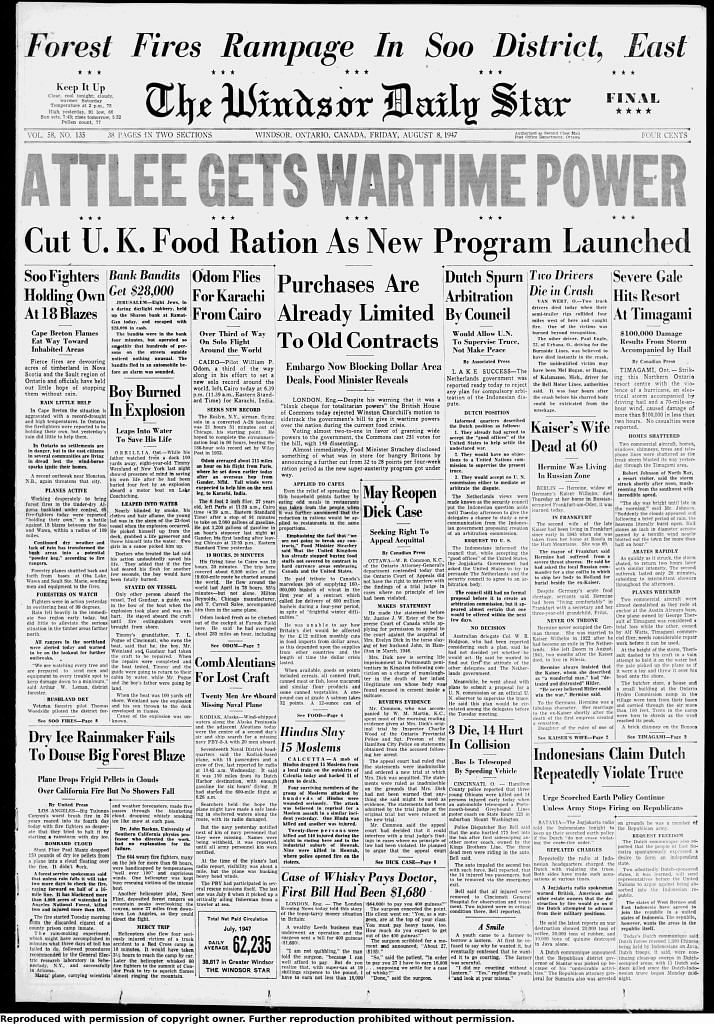

A report in The Globe and Mail portraying a rosy view of the Raj in India wrote, “As the long history of British rule ends, it is impossible not to look back and recall Britain’s great services to India. The record is studded with famous names—Clive, Hastings, Cornwallis, Curzon and many others…It is the greatest political wonder of modern times that Britain controlled for generations, through a civil service of a few thousand men and several divisions of troops, a subcontinent with more than twice the population of North America. The explanation is that these British officials and soldiers were friends and servants of India, devoted to India’s protection and progress.”
The “few exploiters, some lazy bureaucrats and some arrogant ‘Anglo-Indian officials’” were just ‘black sheeps’ among them, according to the paper. It argued: “If these men (‘black sheeps’) had been representative, British rule would have ended long ago and on terms much less friendly than those of the power transfer this week. The really typical Britons in India were conscientious administrators, scientists, technicians, teachers, doctors and engineers who gave hard-working lives to India’s welfare.”
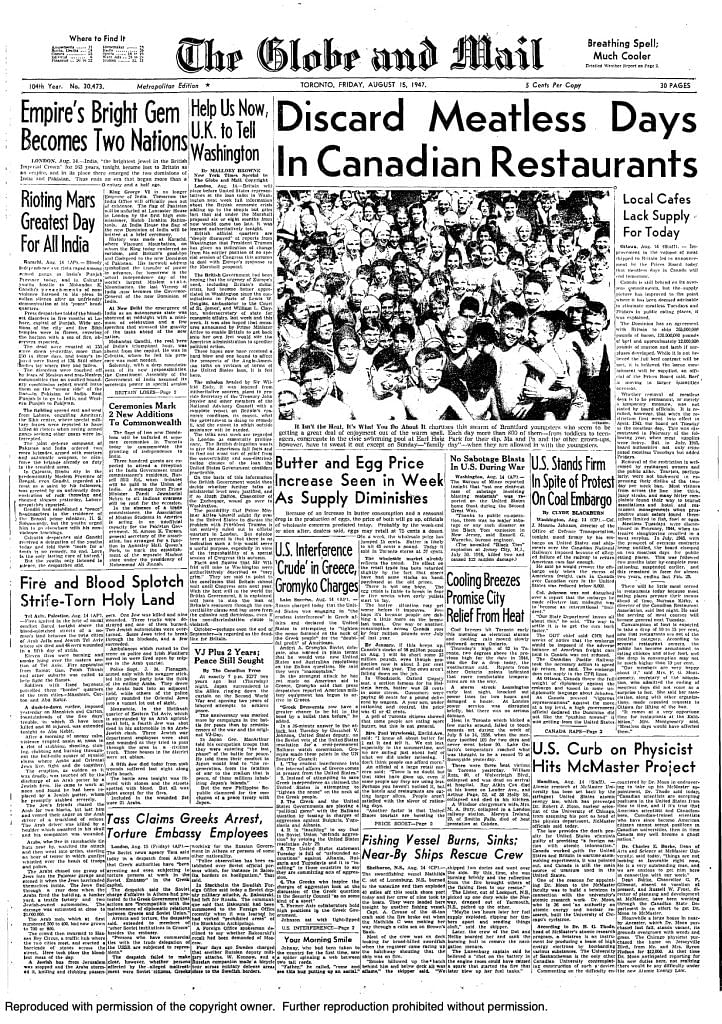
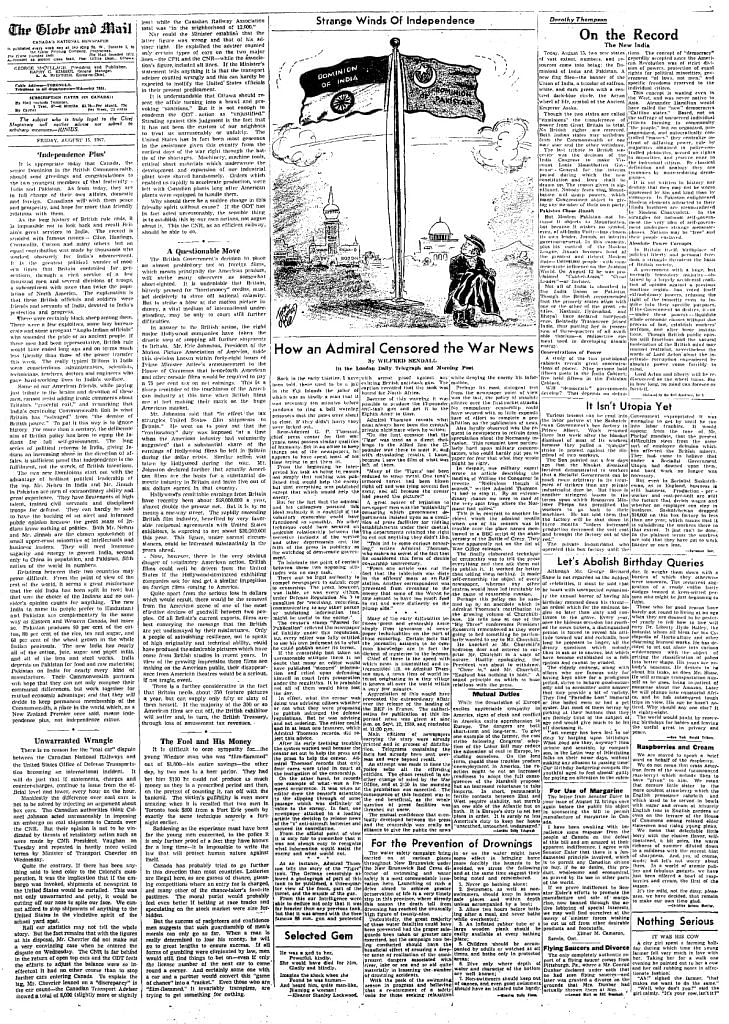
The New York Times, while praising the peaceful transfer of power from Britain to India and Pakistan, noted in its 15 August editorial, “Indeed, it is part of the greatness of the day that the transition from British rule to Indian self-government is being accomplished by mutual agreement and amid reciprocal good-will…it represents a triumph for both British and Indian statesmanship—for the British because it recognized the historic tide and did not attempt to beat it back…”
While terming the event as “a process of self-liquidation (of the British Empire)” and “twilight of colonialism everywhere”, “the whole world of Kipling’s imagery sinks into oblivion”. The editorial also credited the Raj for several things. “The captains and the kings that strutted across the scene of India’s history depart, one hopes, never to return. Yet at its passing it is only fair to remember that with all its grandeur and its misery, colonialism, too, has performed an historic mission in bridging the cleavages between different civilizations, and that the British Raj in particular has been not without benefit to the Indian people. It left India more united and peaceful than that seething land of many faces, many creeds and many invasions has ever been. And it advanced the democratic ideal of popular self-government much further in India than other Oriental countries with their patriarchal traditions have been able to develop within themselves. Its last act of peaceful renunciation of power at the demand of the Indian people is the final proof thereof.”
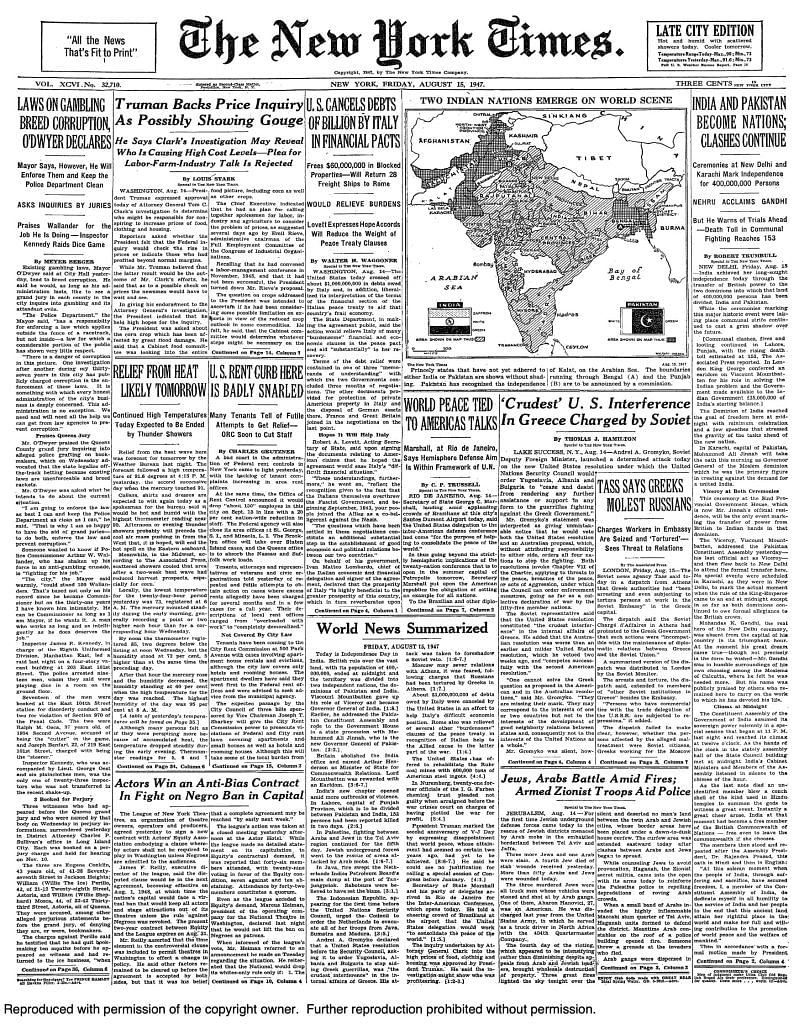
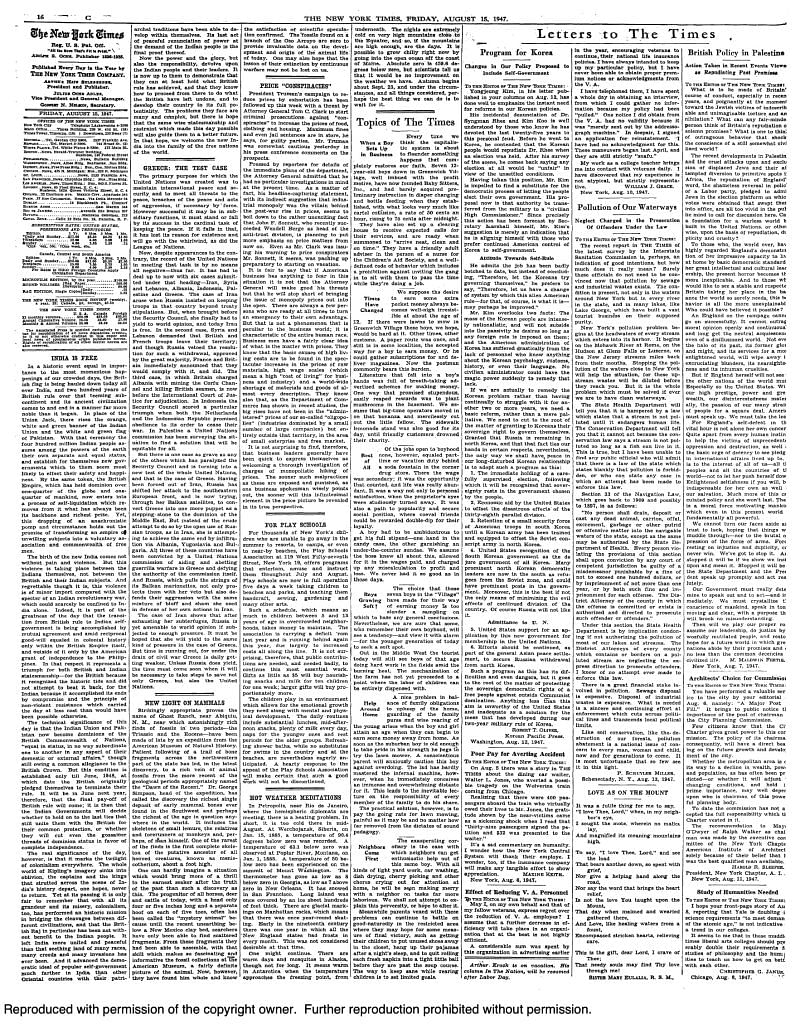
The continuation of independent India as a member of the Commonwealth of Nations was seen as a kind of consolation prize for Britain in some sections of American newspapers. The Globe and Mail objected to the suggestion and wrote, “Some of our American friends…cannot resist adding ironic comments about Britain’s “graceful exit”, and remarking that India’s continuing Commonwealth link is what Britain has “salvaged” from the ‘Demise of British power”. To put it in this way is to ignore history. For more than a century, the deliberate aim of British policy has been to equip the Indians for full self-government.”
Aah, the benevolence of the Raj.
Urvish Kothari is a senior columnist and writer based in Ahmedabad. He tweets @urvish2020. Views are personal.
(Edited by Humra Laeeq)



